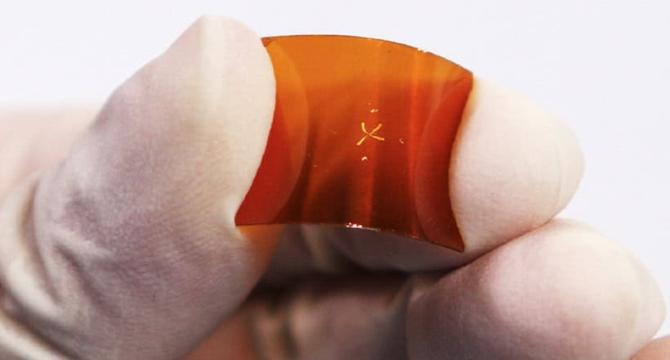Physicsworld
4w
93

Image Credit: Physicsworld
Quantum material detects tiny mechanical strains
- Scientists from Nanjing University of China have developed a quantum material-based sensor that can detect strains in a material more than an order of magnitude weaker than was possible with previous sensors. Traditional sensors' resistances don't change much under strain, making it hard to detect weak strains, but a material from single-crystal vanadium oxide can easily measure the changes and generate large electrical signals. The Nanjing researchers faced challenges in fabricating the sensor because of the material's structure, and used a specially-adapted hydrogen-assisted chemical vapour deposition micro-nano fabrication process to create it. The device could have applications in materials science and electronics engineering.
- Vanadium oxide is used in this sensor and the material shows potential for strain detection applications, prompting researchers in electronics engineering and materials science to study similar compounds and this context. The team grew high-quality, smooth single crystals of the material and transferred them from the SiO2/Si wafer on which they were grown to a flexible substrate (smooth and insulating polyimide), and then loaded the polyimide substrate/VO2(B) into a customized strain setup. Once the device had been created, researchers measured how the current voltage characteristics of the mechanical sensor changed as strain was applied to it. Under no strain, the channel current of the device registers 165 μA at a bias of 0.5 V, indicating that it is conducting.
- The device was able to detect slight mechanical pressure from small objects, gentle airflows and tiny vibrations, and future research will involve integration with flexible devices in order to create ultra-sensitive quantum material sensing chips.
Read Full Article
5 Likes
For uninterrupted reading, download the app